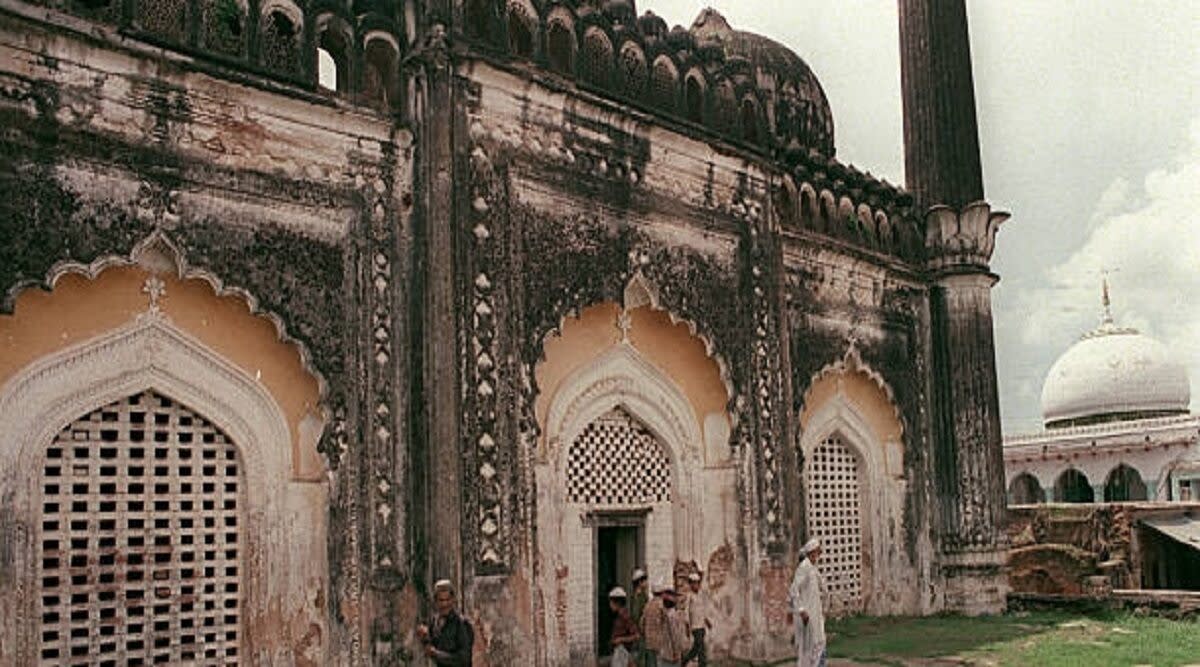Babri Masjid Demolition Case Verdict Tomorrow: Here Are 10 Points to Know About Ayodhya Land Dispute

Ayodhya, September 16: A special CBI court will pronounce its judgment in the Babri mosque demolition case tomorrow, September 30. The verdict will be pronounced by special CBI court Judge SK Yadav. He will announce whether former deputy prime minister Lal Krishna Advani, BJP veterans Murli Manohar Joshi, Kalyan Singh, Uma Bharti and Vinay Katiyar, and other 27 accused were involved in the demolition of Babri Masjid on December 6, 1992. The Islamic structure on land, which Hindus considered to be the birthplace of Lorn Ram, in Ayodhya was brought down by "karsevaks". Here ate 10 points to know about the case. Ayodhya Verdict: Full Text of Supreme Court Judgment in Babri Masjid-Ram Janmabhoomi Title Dispute.
Also Read | Uma Bharti Tests COVID-19 Positive, BJP Veteran Contracts Virus During Himalaya Visit
Mughal Emporer Babur’s general Mir Baqi constructed the Babri mosque in Ayodhya in 1528. In 1853, Hindus staked a claim on the land and demanded access. The British permitted access till the outer courtyard to the Hindus. It was around this time that Sita Rasoi and Ram Chabootara were allegedly built.
In 1885, Mahant Raghubir Das of Nirmohi Akhara sought permission for prayer on the land and construction of a temple in place of Ram Chabootara. His suits were rejected by the British.
On the night of December 22, 1949, idols of Lord Ram "appeared", or were "placed" inside the Babri mosque. Both Hindus and Muslims filed title suit to secure possession of the disputed land. The government locked the site.
In 1950, two suits were filed in Faizabad court by Gopal Singh Visharad and Paramhansa Ramachandra Das, seeking permission to pray to Ram Lalla. The court granted them permission, but the inner courtyard gates remain locked.
In 1959, Nirmohi Akhara filed a title suit. In 1961, Uttar Pradesh Sunni Waqf Board filed a suit seeking possession of Babri mosque site.
In 1986, following a petition by a lawyer, the Faizabad Session Court ordered for the opening of the disputed site and allowed Hindus to pray. In 1989, a suit was filed what would eventually be the "winning" suit in the title dispute.
In 1989, Prime Minister Rajiv Gandhi allowed the Vishwa Hindu Parishad to conduct a ceremony, called the Shilanyas (consecration) near the disputed area. In 1990, then BJP President LK Advani started his rath yatra to mobilise support for the construction of a Ram temple in place on the Babri mosque.
During the same year, a mob partially damaged the mosque. To foil this attempt to demolish the structure, then UP Chief Minister Mulayam Singh Yadav ordered the police to open fire at the mob marching towards Babri Masjid. 16 "karsevaks" were killed in the firing.
On December 6, 1992, a large mob of "karsevaks" demolished the Babri mosque and made a makeshift temple on the disputed land. Two FIRs were registered on the same day.
In one of the cases, LK Advani, Ashok Singhal, Vinay Katiyar, Uma Bharati, Sadhvi Ritambara, Murli Manohar Joshi, Giriraj Kishore and Vishnu Hari Dalmia were named as accused and were booked under Sections 153-A, 153-B and Section 505 IPC. More sections and criminal conspiracy charge were added later.
In 2003, a Rae Bareli court discharged LK Advani as an accused, saying there was not enough of a case against him for him to stand trial. The Allahabad High Court sets aside this Raebareli court order in 2005 and said that Advani and the others were to continue to stand trial. It dropped the conspiracy charge.
In 2017, the Supreme Court ruled against the Allahabad High Court's decision to separate the cases and to drop the conspiracy charges. The apex court also ordered the invocation of conspiracy charges against several accused including LK Advani and 20 others. The trial of all cases was brought back together to the special CBI court.
In the matter related to the title suits, the Supreme Court on November 9 last year granted the ownership of the 2.77 acres of disputed land in Ayodhya to the Hindus, paving the way for the construction of a Ram temple, and ruled that the Muslims will get 5 acres of land at an alternative site. On August 5 this year, Prime Minister Narendra Modi laid the foundation stone for the construction of the Ram temple on the site where once Babri mosque stood.


